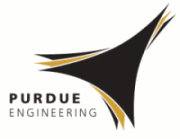Abstract
This quasi-experimental study measured the impact of Project Lead the Way (PLTW) instruction and professional development training on the views and expectations regarding engineering learning, instruction and career success of nascent pre college engineering teachers. PLTW teachers’ initial and changing views were compared to the views exhibited by a matching group of high school STEM teachers. The primary instrument was the Engineering Beliefs and Expectation Instruments for Teachers (EEBEI-T), which included Likert scale items, contextualized judgments about fictional student vignettes, and demographic items. Teachers’ baseline survey responses, on average, revealed the importance of academic achievement on teachers’ decision making about who should enroll in future engineering classes and their predictions of who would be most likely to succeed in an engineering career. When making implicit comparisons between students who differed by SES, teachers generally favored enrollment and predicted more career success of high SES students. SES was excluded as a factor in the judgments of all participating teachers when explicitly probed, however. Preexisting group differences showed that budding PLTW teachers reported on STEM integration in their classes with greater frequency than control teachers, while control teachers agreed more strongly about the pre-requisite role of high scholastic achievement for engineering studies. Finally, an analysis of teachers’ changing views indicated that nascent PLTW teachers increased their reporting of effective STEM integration over time, above and beyond pre-existing group differences and re-testing effects. In light of these data we explore the challenges of implementing effective STEM integration in high school classrooms, examine issues of attracting underrepresented students to engineering, and discuss some of the inherent tensions of engineering education at the K-12 level.
Recommended Citation
Nathan, M. J.,
Atwood, A. K.,
Prevost, A.,
Phelps, L. A.,
&
Tran, N. A.
(2011).
How Professional Development in Project Lead the Way Changes High School STEM Teachers’ Beliefs about Engineering Education.
Journal of Pre-College Engineering Education Research (J-PEER), 1(1), Article 3.
https://doi.org/10.7771/2157-9288.1027


